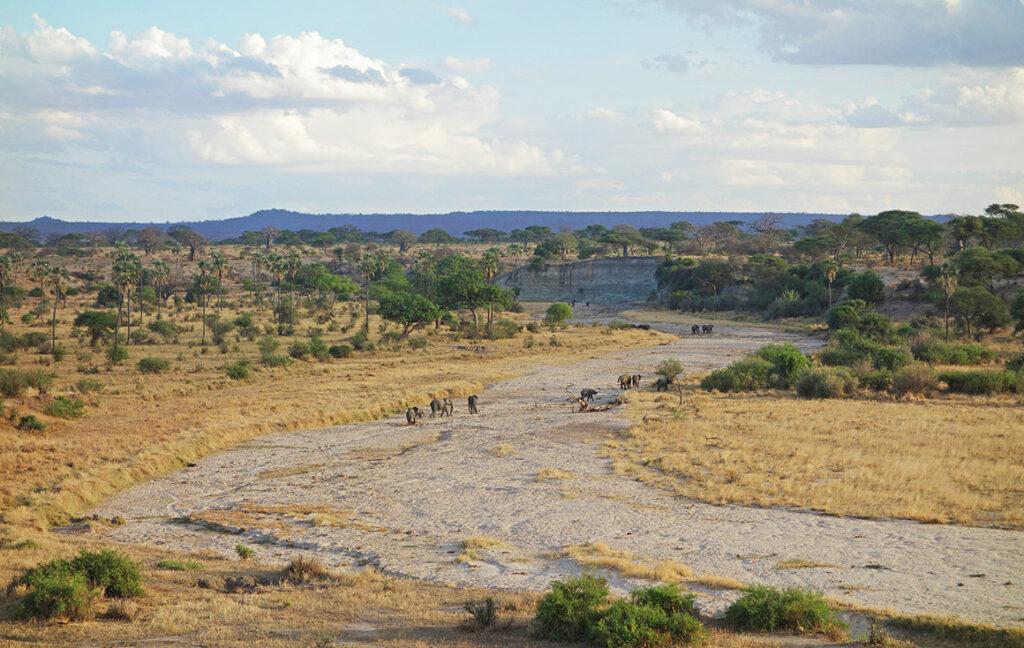Where to go in Tanzania
With over 120 distinct tribes speaking over 120 different languages, Tanzania is a really fascinating and unforgettable place to visit. The country’s natural beauties are also second to none. The varied landscapes encompass a wide range of features, such as mountains (including Africa’s highest peak, Mount Kilimanjaro), forests, vast savannah grasslands, gorges, dry flatlands, Miombo woodlands, and white sand beaches.
More than twenty game reserves and national parks dot Tanzania, drawing in crowds of tourists from all over the world each year. It is an animal lover’s dream come true, with a wide variety of birds, lions, and elephants.
Tanzania safari destinations
Choose from small group, private, or fly-in safaris that are designed to suit your interests. From well-known to lesser-known:
You can view the Big 5, stunning landscapes, and a plethora of species in the classic safari spots found on the Northern circuit, such as Tarangire National Park, Serengeti National Park, and Ngorongoro Crater. Here you can find two World Heritage Sites recognized by UNESCO and the wildebeest migration.
Travelers who enjoy being outside will enjoy the Southern Circuit. Both Ruaha National Park and Selous/Nyerere National Park are a part of a massive ecosystem that is home to a plethora of creatures when the weather is dry. In these stunning natural settings, you may enjoy less crowds, boat safaris, and guided hikes.
Those who would rather take a left turn than a right turn can do so on the Western circuit. A chartered flight is often necessary to access these extremely isolated parks, which means that they receive fewer tourists. The payoff is an older Africa teeming with amazing animals. White sand beaches and chimpanzee sightings await visitors to Mahale Mountains National Park, while the incredible fauna of Katavi National Park is sure to astound.
Trekking in Tanzania
Mount Meru and Africa’s highest mountain, Kilimanjaro, may both be climbed with the help of guides. While the Shira Plateau day climb offers a fantastic opportunity to witness the varied flora and fauna of Kilimanjaro. Udzungwa Mountain and Gombe Stream National Parks are two examples of national parks that are ideal for serious hikers and can only be explored on foot.
Beach retreats in Tanzania
Located on the country’s eastern side is the Zanzibar Archipelago, an archipelago of islets and islands centered by the world-famous spice islands Pemba and Zanzibar (Unguja). A little further south of Zanzibar lies Mafia Island, an alleged jewel of the Indian Ocean. Kite surfing, scuba diving, deep sea fishing, kayaking, and snorkeling are just a handful of the many water sports that water sport enthusiasts can enjoy. When you combine Tanzania and Zanzibar, you get something truly unique. You can end your ideal safari with a relaxing getaway to a tropical beach. Tanzania is an ideal honeymoon destination where you may make memories that will last a lifetime.
Map showing some of the Main destinations/National parks of Tanzania

Arusha National Park
Mount Meru trekking is only one of many exciting outdoor activities available in this park, which is about 50 kilometers from Arusha. You can explore every inch of the park on a guided walk because there aren’t many predators. You can take in breathtaking vistas of Kilimanjaro and Meru around every bend. On your way to the Tululusia waterfall, Ngurdoto crater, and breathtaking vistas, you’ll see buffalo and giraffe herds. Another exciting activity is the guided canoe excursions on Momella Lake. Paddle leisurely alongside hippos as you listen to the cries of fish eagles. You can observe wading waterbuck, zebra, and warthog as you stroll down the shore, and you’ll have an incredible time birding with the approximately 400 bird species.
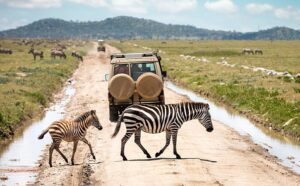
Ideal for | Nature Lovers, Active Travellers, and Tanzania Newbies
Lake Manyara National Park
Stopping by this little park on the Northern Circuit en route to Serengeti National Park is a great idea. For those who want to relax in nature during the initial days of a safari, this is an ideal location. Here you may find lions, however they aren’t always easy to see. The woodland seashore is home to a big population of buffalo. During certain times of the year, flamingos congregate at this location to feed on the algae that grows in one of the alkaline lakes in the Rift Valley. The ideal time to see animals is during the dry season. Unwind in the great outdoors, far from the hustle and bustle of city life!
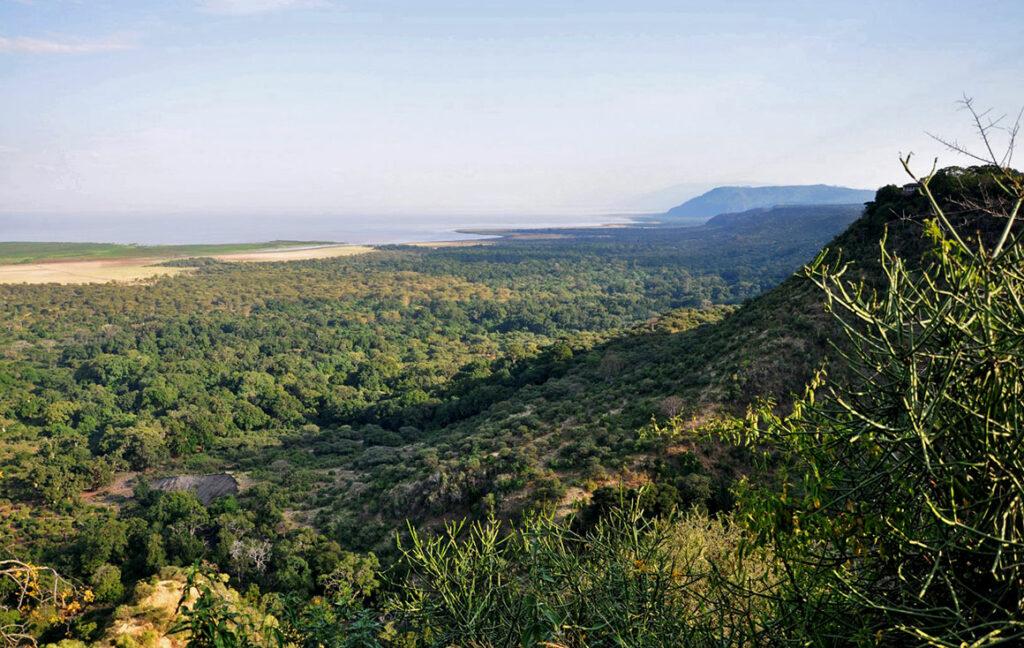
Ideal for | Nature Lovers, Tanzania Newbies, Families
Lake Natron & Ol Doinyo Lengai
The Northern Circuit is well-known, but this less-traveled path is still near by. With its scorching, dusty, and otherworldly atmosphere, Lake Natron and its surroundings will enchant you. The enormous alkaline lake takes on a reddish tint as a result of an algal reaction triggered by the water evaporation from Lake Nation during the dry season. Something that can be seen from space. No living thing can survive ingesting the lake’s toxic water. You can’t miss the flamingo. Flamingos, who have adapted to this harsh environment, come to this location in large numbers (around 2.5 million) to breed. Pink flamingos dive for algae as the conical Ol Doinyo Lengai, dwelling place of the Maasai deity Ngai, looms majestically in the hinterland.
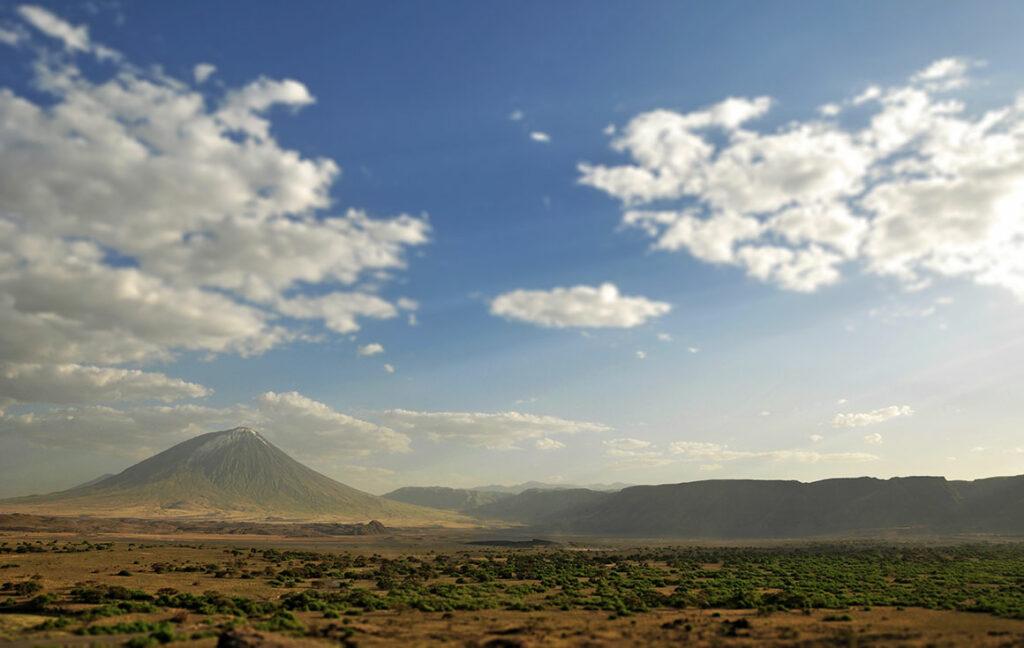
Ideal for | Outdoor Lovers, Explorers, Serenity Seekers
Mahale Mountains National Park
With its towering forests and picturesque Lake Tanganyika beaches, Mahale is like something out of a fairy tale. As the sun sets over this tropical paradise, there is no better way to enjoy a sunset cruise aboard a dhow. Mahale Mountains National Park is a tranquil retreat that is only accessible by plane and boat, providing an opportunity to escape the hustle and bustle of everyday life. The park’s wooded areas are inaccessible by car or other means. You may swim in plunge pools and see waterfalls in the forest. You can also see amazing birds and, if you’re lucky, uncommon primates like chimpanzees. Après a hike through the jungle, unwind by snorkeling or scuba diving.
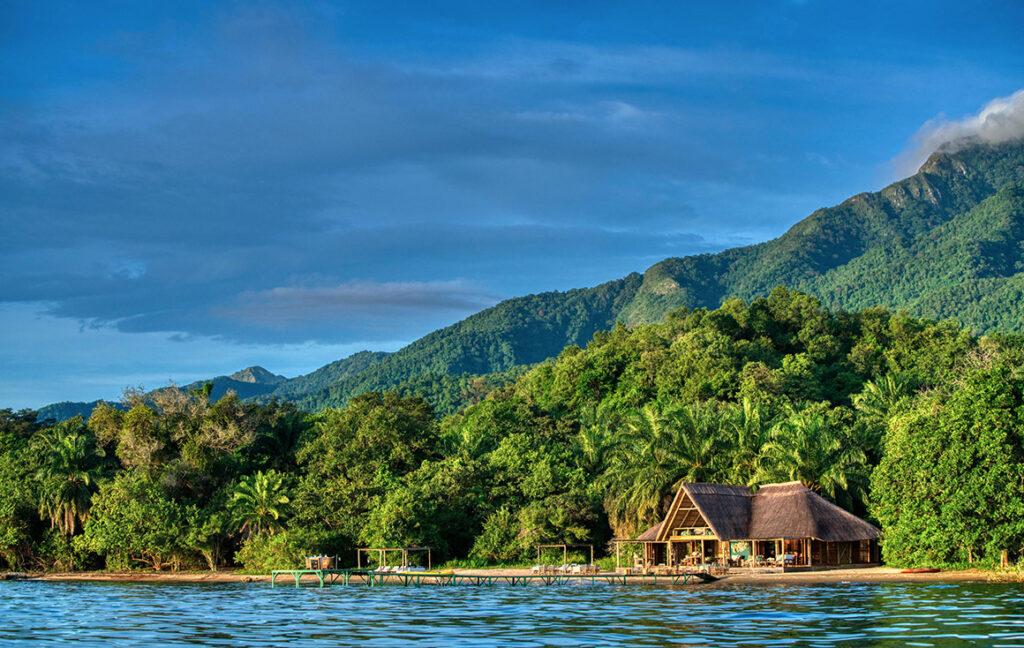
On the Southern Circuit, Mikumi National Park is a fantastic pit stop, located at 218 km from Dar es Salaam. Stunning in appearance as well as size. On the northern boundary, you can see the Ruhebo and Uluguru mountains, and the savannah is filled with tamarinds, baobabs, and acacias. You can look forward to seeing four of the Big Five animals—the rhino being the lone exception. On the Mkata plains, you can find huge herds of buffalo, antelopes, and elephants, while in the riverbank forests, you can find lions and leopards waiting for their chance to strike. The guided hike to Kinole Waterfall, where you can swim in the plunge pool, and witnessing the endangered Wild Hunting Dog are the highlights.
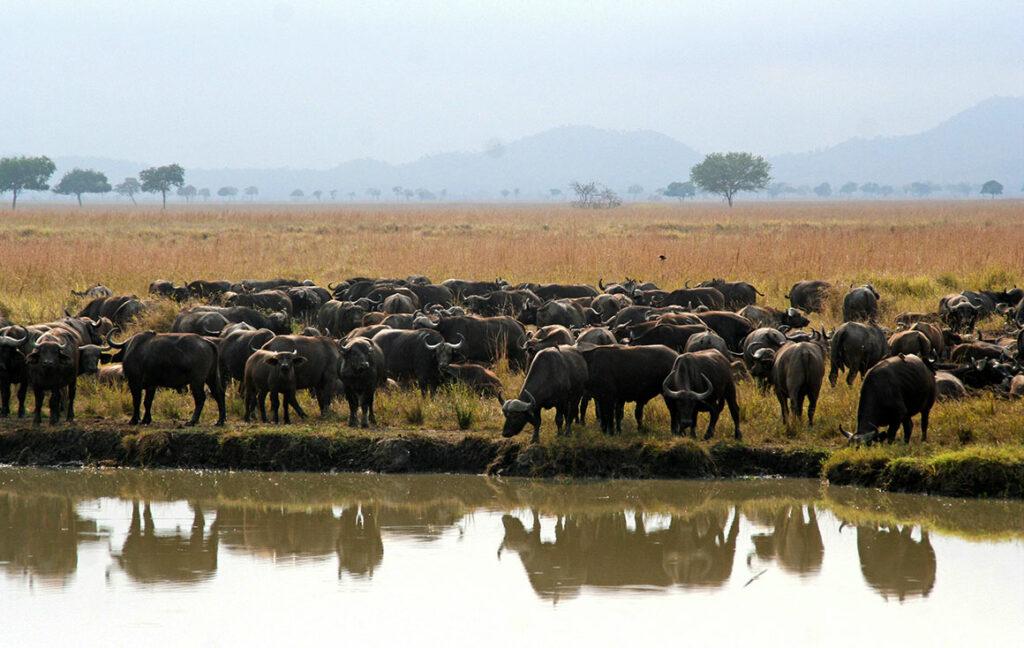
Mkomazi National Park
Unknown and underappreciated, this park boasts breathtaking vistas of Kilimanjaro and a remarkable backstory that includes a natural tragedy, restoration efforts, and the return of endangered species like the wild hunting dog and black rhino. Tsavo National Park in Kenya is a major stop along a major migration route, particularly for elephants. Tragically, just eleven Black Rhinos survived the poaching epidemic of the 1950s. The government was hell-bent on turning things around in the 1980s. About 500 elephants and 200 wild dogs are free to wander now, while the black rhinos are in a sanctuary for protection. In addition to hyenas, leopards, cheetahs, and Oryx, this area is home to a plethora of antelopes.
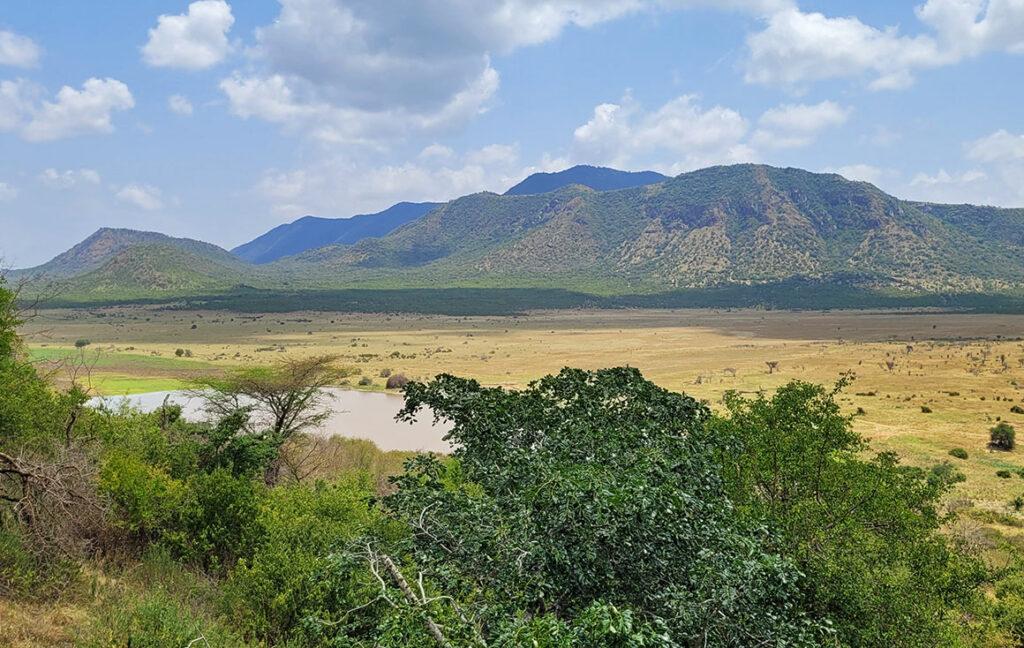
Mount Kilimanjaro National Park
The bulk of tourists come to Arica with a singular objective—to reach the top of Mount Kilimanjaro, the highest mountain in the region. But if you look closer, you’ll see why this mountain was designated a UNESCO World Heritage Park—it has five different types of vegetation and is home to rare and endangered animals. The most efficient method for this is to sign up for a day hike to the Shira Plateau. At 3500 meters, after passing through a forest where monkeys and birds live, the trail leads to Shira Crater. Take your time and savor the breathtaking scenery as you embark on an incredible journey.
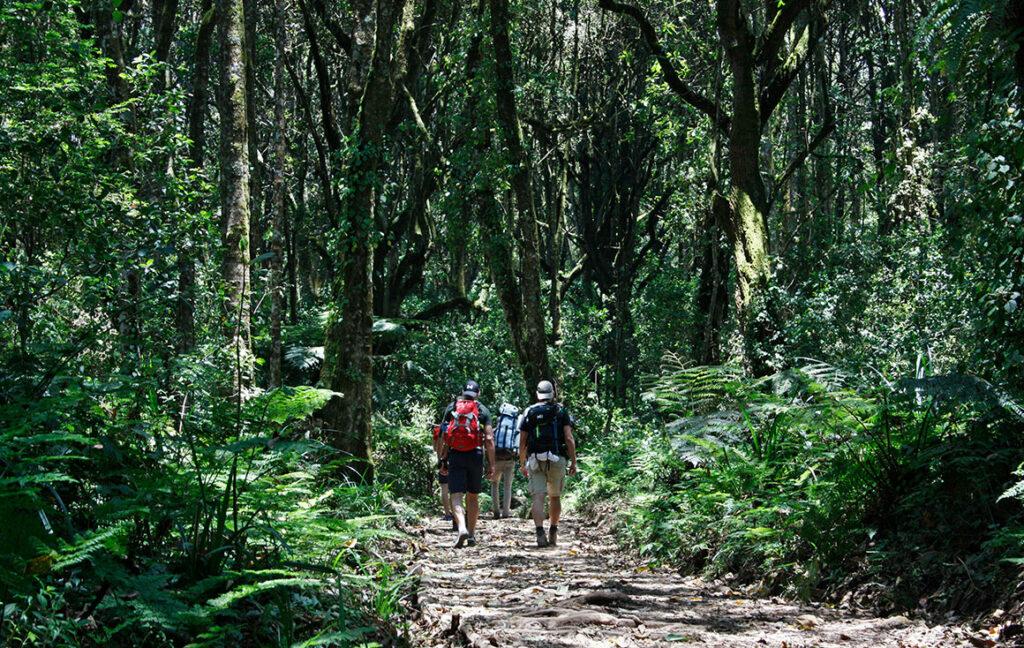
Ngorongoro Crater
One of the most famous and iconic stops on the Northern Safari Circuit, this adventure takes you to the base of the biggest preserved caldera on Earth, where you can observe some of the most incredible animals in the world. Incredible open grasslands, lakes, and trees make up this 20 km diameter scene that will astound you. One of the most visited stops along the Northern Circuit, it is a breathtaking natural wonder. This lush sanctuary is home to a great variety of birds and animals. The Black Rhino is a resident of the area, thus sightings of the Big Five are not out of the question. The giraffes are the only ones missing; experts think their long legs can’t negotiate the steep crater walls.
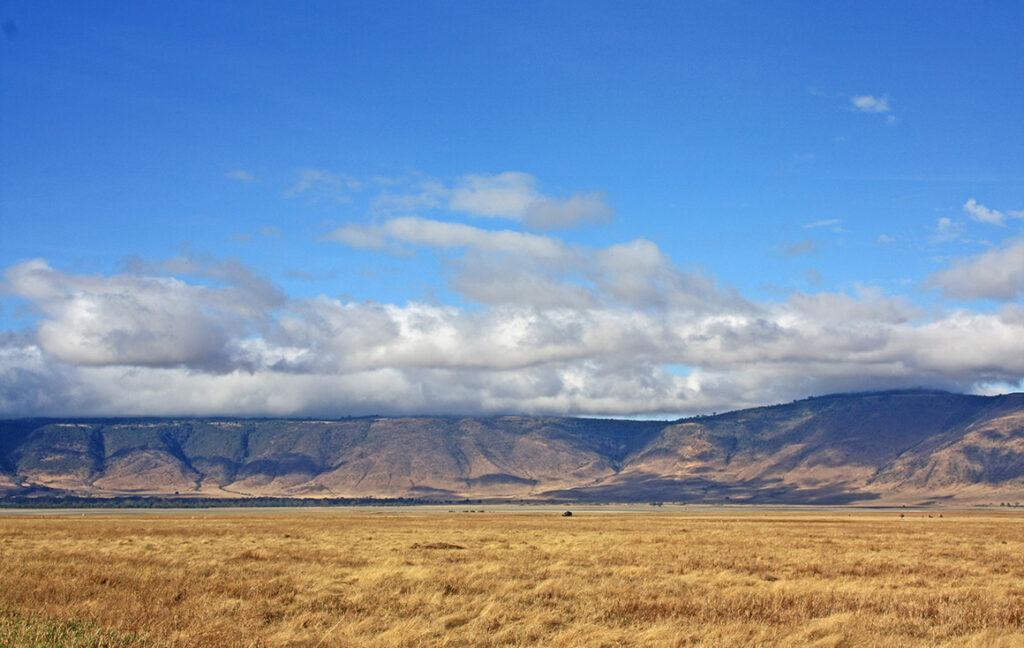
Ruaha National Park
A stop on the way to the South Those in search of a less crowded environment in which to observe fascinating species might visit Ruaha National Park. Plants and animals from both Eastern and Southern Africa can be found in Ruaha National Park, making it a veritable melting pot of biodiversity. Here, almost 1,650 different plant species have been discovered, which is quite unbelievable. During the dry season, the Ruaha River draws an astonishing number of predators and prey to its banks, providing nerve-wracking moments of life and death. The bird and animal life is, without a doubt, outstanding. Additionally, in the shade of the enormous baobab trees, one can observe enormous herds of elephants swaying subtly. Ruaha is a popular safari location, although it receives a disproportionately large number of tourists because it isn’t located on the Northern Circuit.
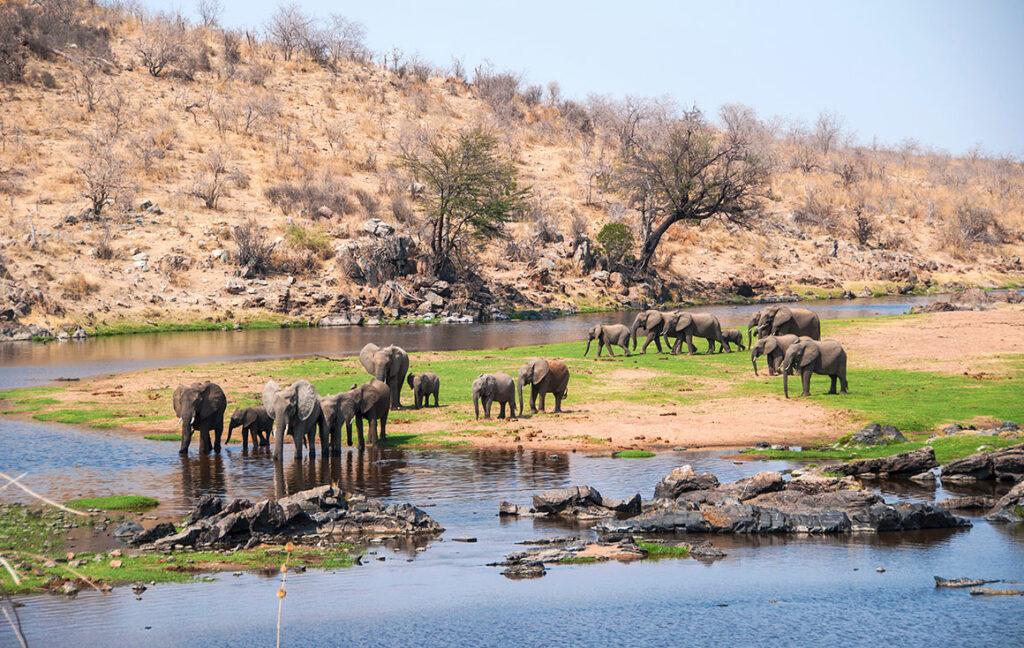
Selous & Nyerere National Park
Some have said that the Selous Game Reserve and Nyerere National Park constitute one of the biggest surviving African wildernesses. More species are found in the Miombo forests than any other area. Because of these characteristics, it was designated as a World Heritage Site by UNESCO. Game drives, boat safaris, and guided walks offer the chance to observe the Big 5, along with some of the world’s greatest populations of buffalo, lions, hippos, and elephants. But the wild dogs and rare black rhinos that call this place home can be hard to notice. There is an extraordinary opportunity waiting for you. Its vast size and secluded setting in southern Tanzania ensure that it never seems overrun with tourists.
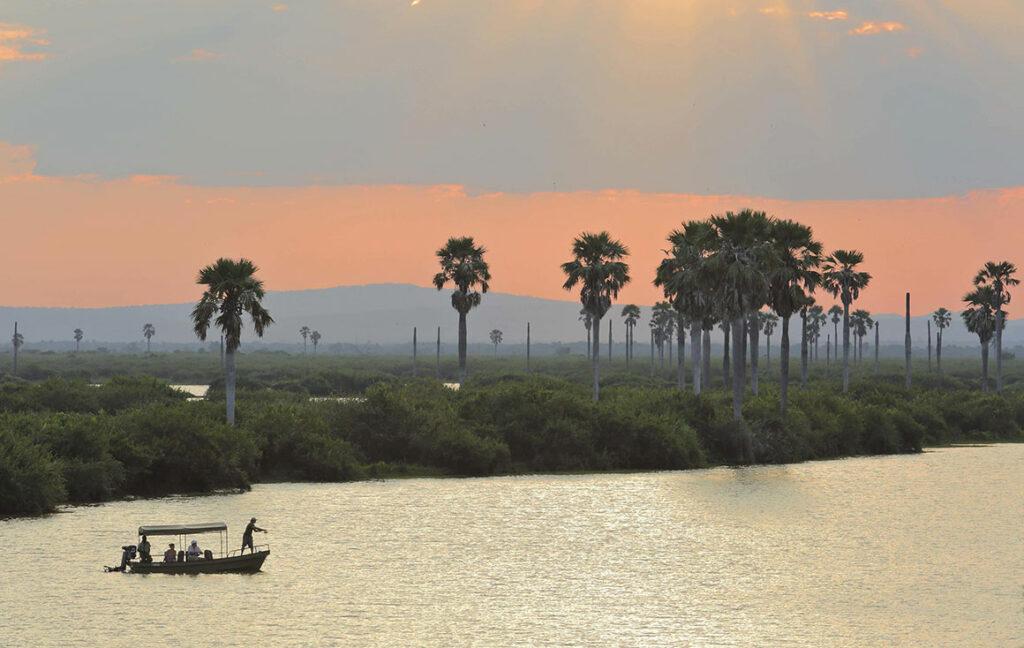
Serengeti National Park
This park forms a wide habitat that permits around 1.5 million wildebeest to perform one of the world’s greatest wildlife migrations, since it borders six conservation areas, including the Masai Mara National Reserve in Kenya and the Ngorongoro Conservation Area. Predators and prey engage in a fierce interaction as a result. On a migratory safari, you can see this happen. Nevertheless, as a UNESCO World Heritage Site and one of the oldest parks in Tanzania, it provides exceptional wildlife watching opportunities throughout the year, with a high probability of spotting the Big 5. Expansive grasslands, picturesque hill ranges, tree-lined rivers, and granite formations known as Kopjes are just a few of the breathtaking views you can find. You can pick from a wide variety of lodging alternatives, ranging from simple tents to expensive luxury camps.
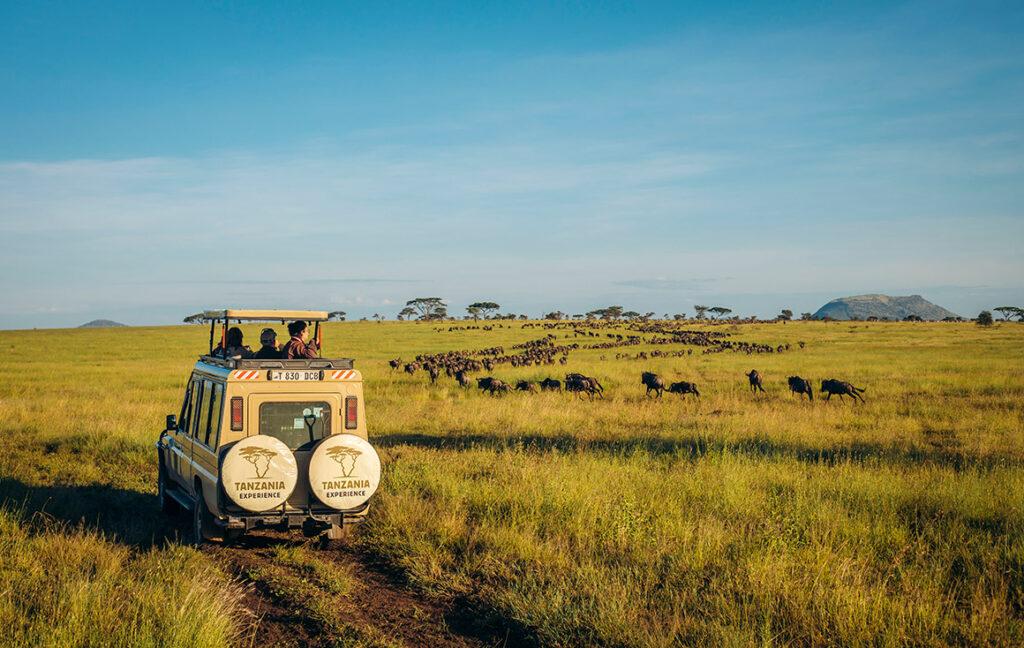
Tarangire National Park
Anyone who loves elephants should visit Tarangire National Park. Located in northern Tanzania, it is the site of the Tarangire River, a remarkable geological feature. Countless animals leave the terrain and congregate beside this meandering river during the dry season, where they wait for the rains to come back. While on safari, you may notice a multitude of pathways winding their way down to the river. The enormous pads of one of the biggest elephant populations in Tanzania are responsible for their formation. Lions and leopards live along the river in this stunning park, making it an ideal spot to see animals. Bird watching is made exceptional by more than 500 different species.
